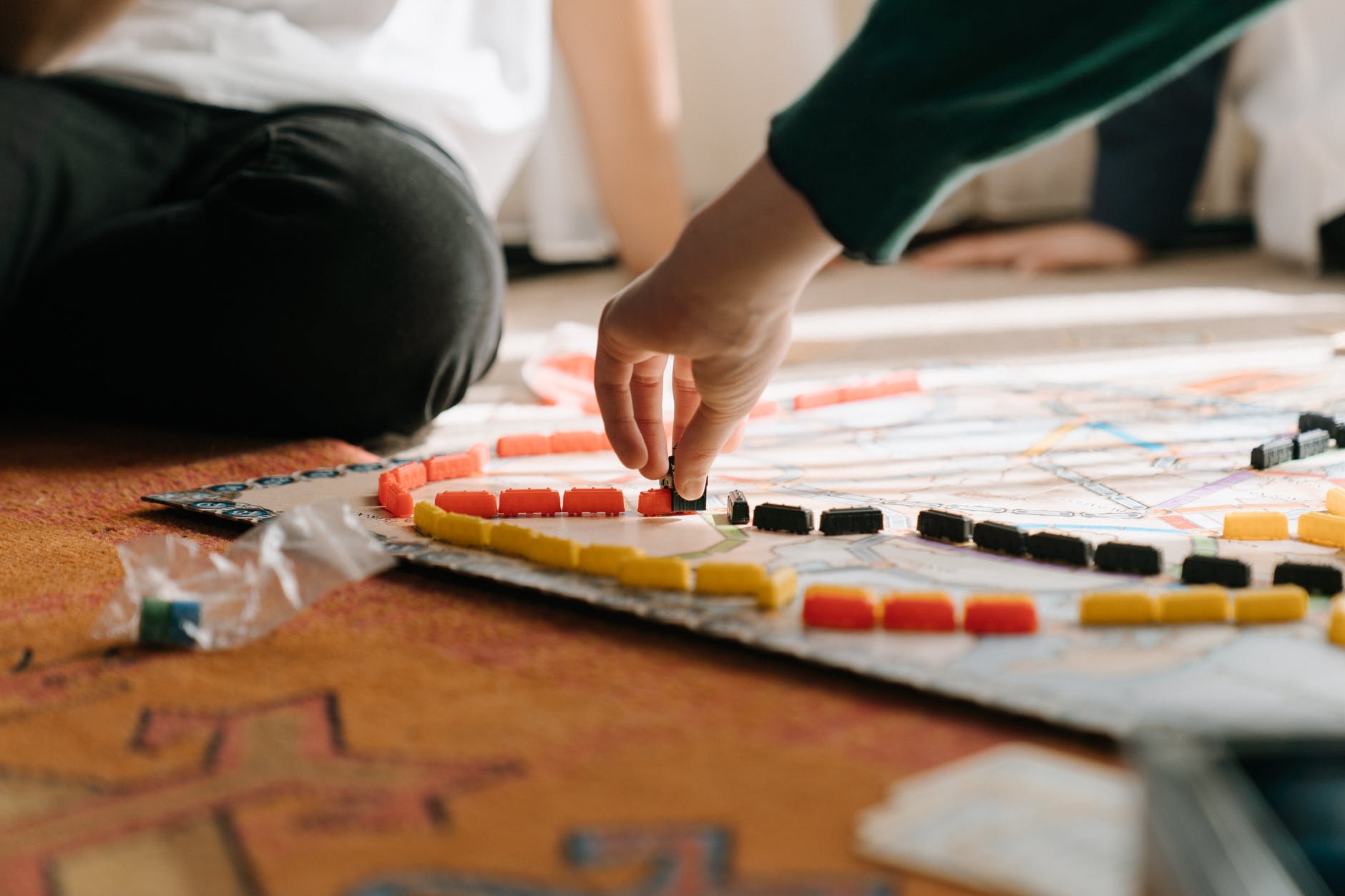Blog

Best Occupational Therapy Board Games for Kids
Kids love board games. (So do a lot of grownups!) They’re a great way for kids to challenge their mind, practice turn-taking and test out their math skills. We use them a lot in our Northeast Ohio occupational therapy clinic not only because they’re excellent motivators, but they can also help us target things like hand strength, sensory input, bilateral coordination, visual discernment and other fine motor skills.
In short: Board games can make the “work” of occupational therapy a lot more fun! And kids learn better when they’re having fun.
Plus, with so much online schooling, virtual therapy, etc. this year, many parents are encouraging their kids to find other outlets for fun. Board games are a great alternative!
How Board Games Help With Learning Numbers
One of the most important benefits of board games is improvement with learning numbers. These skills include:
- Verbal counting. Before kids really understand what numbers are and what they represent, they learn to count in order. Lots of board games involve moving players along a certain path, which gives kids a chance to practice counting how many places their player moved.
- Identifying numbers. Before kids can start doing math, they need to learn how to pair their verbal counting with the printed number – and how those numbers relate to the ones before and after. Dice can help with this, as can card-counting, turn-taking (first, second, third, etc.) and numbers on the game board/cards.
- Learning linear numbers. Games that have players move on a linear path with increasing numbers help kids begin to understand the distance between two numbers. For instance, 9 is farther from 5 than 7.
- Comparing quantities. When players are moving along a game board along ordered numbers or spaces, they start to learn how numbers and quantities relate to each other.
Other Occupational Therapy Skills Kids Learn Playing Board Games
Learning numbers isn’t the only OT skill board games are good for. Some others that get a boost:
- Taking turns (and self regulation, which is needed for this).
- Social skills/how to be a team player/use good sportsmanship.
- Development of language skills (the player moves five spaces; your piece is ahead of mine; my player goes under the bridge, etc.).
- Visual motor skills (moving the piece across the board).
- Executive function skills.
- Focus and attention.
- Cognitive skills.
Some Board Games that We Love
Our Akron occupational therapy team is going to look for whatever games are going to encourage kids to be engaged while also targeting their goals. So the games we choose may be different from child-to-child. When possible, we also look for opportunities to pair kids up so they can work with their peers on social skills.
Some games that are often top contenders:
- Connect 4. This is great for visual perception, requiring players to track the pieces vertically, horizontally and diagonally with their eyes. They need to figure out where the checker is going to land so they can place it in the right spot. Plus, they aren’t just keeping track of their own colors – they need to watch their opponents as well. They’re also counting and using patterns.
- Dominoes. There are SO many games we can play with dominoes, but they’re great for kids of all ages to stack/practice fine motor skills. They’re also great for more tactile learners because they can see and feel the dots.
- Spot it! / Spot it Jr.! Our occupational therapy AND speech therapy teams are big fans of this game. The whole goal is developing focus, visual perception skills, speech-language skills and fine motor skills. There are five different ways for between 2 and 8 players to play, but basically, between any two cards, there is always one (and only one) matching symbol. You have to be the fastest person to spot it to win. There are a bunch of different versions of it too, not only for different age groups, but different topics like animals, camping, NFL and alphabet.
- Memory. The whole point of Memory is to help one’s visual memory skills. Kids must remember the cards they picked and where on the grid the matches are located. There are tons of online options for Memory, but you can also make up your own cards!
- Trouble. This game gives kids a chance to work on the hand strength (so integral in handwriting!) every time they press down the popper. (Just encourage them to use their finger and hand muscles, as opposed to their body weight when they do it.) Kids also get a chance to practice their pincer grasp when they move their pieces around on the board.
This list isn’t exhaustive, but is intended to get you started. The occupational therapy team at Therapy & Wellness Connection is happy to help you brainstorm some board games that would be perfect for YOUR child!
Therapy & Wellness Connection – your connection to a life without limitations – provides occupational therapy to children in Cleveland, Brecksville-Broadview Heights, Akron and surrounding communities. We also offer summer camp, day programs, homeschooling, tutoring, vocational services and more. Call us at (330) 748-4807 or send us an email.
Additional Resources:
Promoting numeracy skills through board game play, November 2018, Nicole M. Hendrix, PhD, Robin L. Hojnoski, PhD, Kristen N. Missall, PhD, Young Exceptional Children
More Blog Entries:
Value of Occupational Therapy for Kids Highlighted During the Pandemic, Sept. 5, 2020, Akron Occupational Therapy Blog
